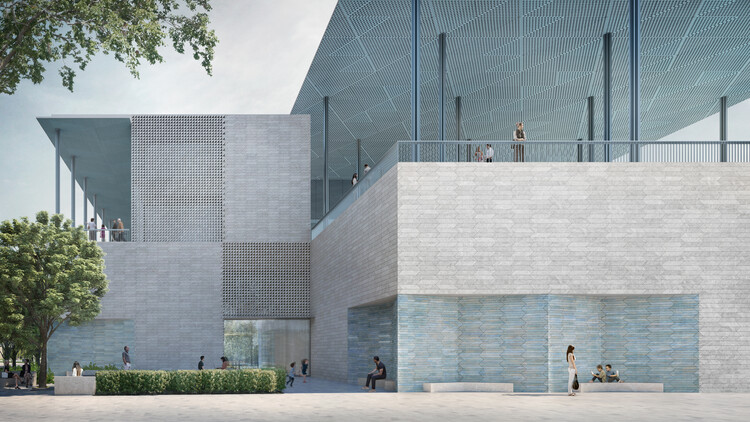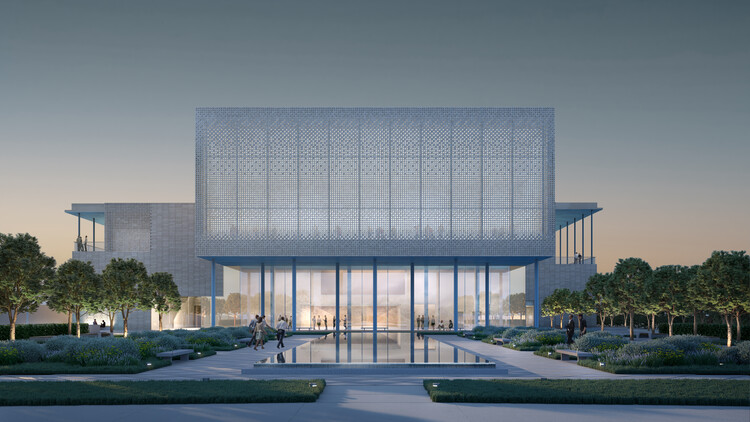
Farshid Moussavi Architecture has recently revealed the design for the Ismaili Center in Houston, a project dedicated to cultural exchanges and civic outreach. An ambassadorial building for the largest Ismaili Muslim community in the United States, the new building will host educational, cultural and social events, while also providing a space for contemplation and prayer. The design showcases a contemporary image while reinterpreting traditional Persian elements, thus establishing a dialogue between tradition and modern architecture.

The project is the winning design of a 2019 international competition whose shortlist included practices like David Chipperfield Architects, Studio Gang and OMA. The proposal features a series of volumes with extensive verandas (eivans) supported by slender columns reminiscent of Persian architecture that allow for outdoor activities to occur all year round. The stone-clad exterior walls are a reinterpreted tapestry, transitioning from solid areas to porous screens.

The interior features three atriums, each adjacent to one of the verandas. The stepped central atrium echoes the archetypal cupola, while the east and west atriums provide access to a hall, a theatre and learning spaces. The project's compact footprint allows for a large part of the site to be occupied by landscaped gardens providing a respite from the urban bustle.
We have tried to work with the Islamic design philosophy and celebrate its singularity and unique qualities as well as the features it has in common with Western design, so that the building, both through its fabric and through the way it is used, would act as a symbol of dialogue. - Farshid Moussavi

The Ismaili Muslims are a culturally diverse community led by Aga Khan, who also founded the Aga Khan Award for Architecture. Spread across 25 countries, its history in the United States starts in the early 20th century, along with the arrival of students seeking to advance their education. The new building will be the seventh in a series of Ismaili Centres located in London, Lisbon, Dubai, Dushanbe, Vancouver and Toronto, acting as symbolic markers of the permanent presence of the community around the world.











